12 Odd Rules Parents Have That Actually Make Their Kids Better People
A different approach can yield incredible results for kids in the long run.
 Olimpik | Shutterstock
Olimpik | Shutterstock While parenting can be all-encompassing in many households with young children and teenagers, research from Pew Research Center argues that many parents are constantly looking ahead. Whether it's building healthy habits or centering odd rules parents have that actually make their kids better people, many households are thinking about their children's future when crafting daily routines.
How can they set their kids up for financial success in adulthood? What habits do they wish they had as kids to better inform their health and well-being as adults? It's questions like this that have many parents crafting and prioritizing all sorts of expectations and rules — not just to benefit their kids in the present moment, but also in the future.
Here are 12 odd rules parents have that actually make their kids better people
1. Early bedtimes, even on weekends
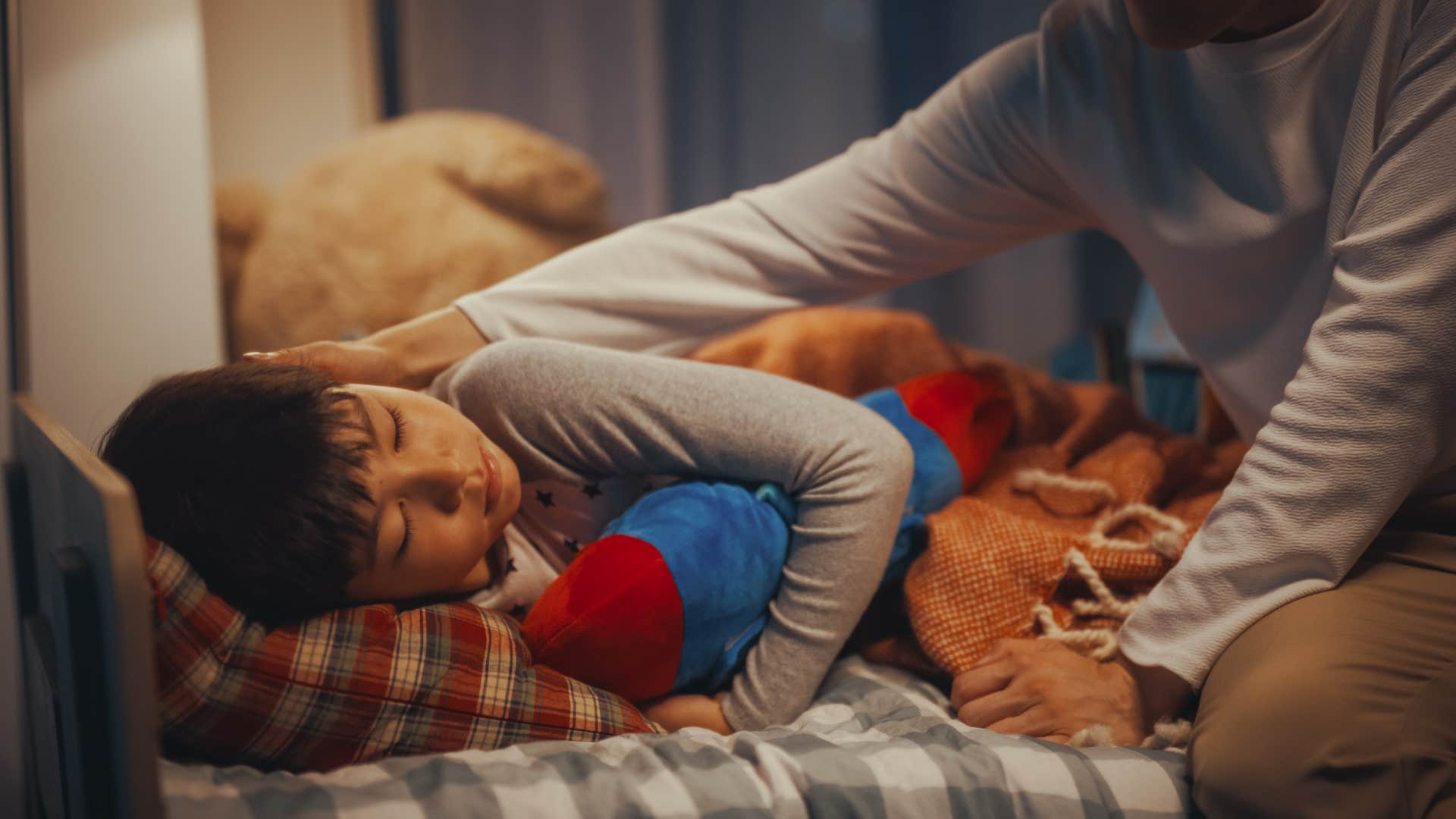 Kitreel | Shutterstock.com
Kitreel | Shutterstock.com
Ensuring kids get the right amount of sleep to restore their bodies and minds is incredibly important, and oftentimes, early in their kids' lives, it's a parent's responsibility to ensure they set a healthy schedule and routine. Many households mastered this restorative routine by enacting a rule similar to this one: everyone goes to bed early, even on weekends, to prioritize their sleep.
According to Reut Gruber, a researcher with the Attention, Behavior, and Sleep Lab, a child's early bedtime routine is incredibly impactful on every aspect of their lives — from physical health, to emotional well-being, and general "brain repair and recovery." A study from the Journal of Pediatric Psychology also found children with later bed times tend to struggle with emotional functioning, memory, and concentration compared to those with earlier bed times, in addition to being at a higher risk for harmful depression and anxiety symptoms.
2. No snacks before bedtime
 Megan Betteridge | Shutterstock.com
Megan Betteridge | Shutterstock.com
Many parents embraced phrases like "The kitchen is closed!" with their children early in life, not just to avoid the messes of a late-night meal, but to protect their children's mental and physical health. According to the Medical Associates of Northwest Arkansas, children's digestion of food at night can take away from the body's restorative benefits during sleep.
Not only will it sabotage brain development and emotional repair in children while sleeping, it can take away from the general quality of their sleep, leaving kids more tired, less focused, and generally irritable throughout the day.
3. Making the bed right when you wake up
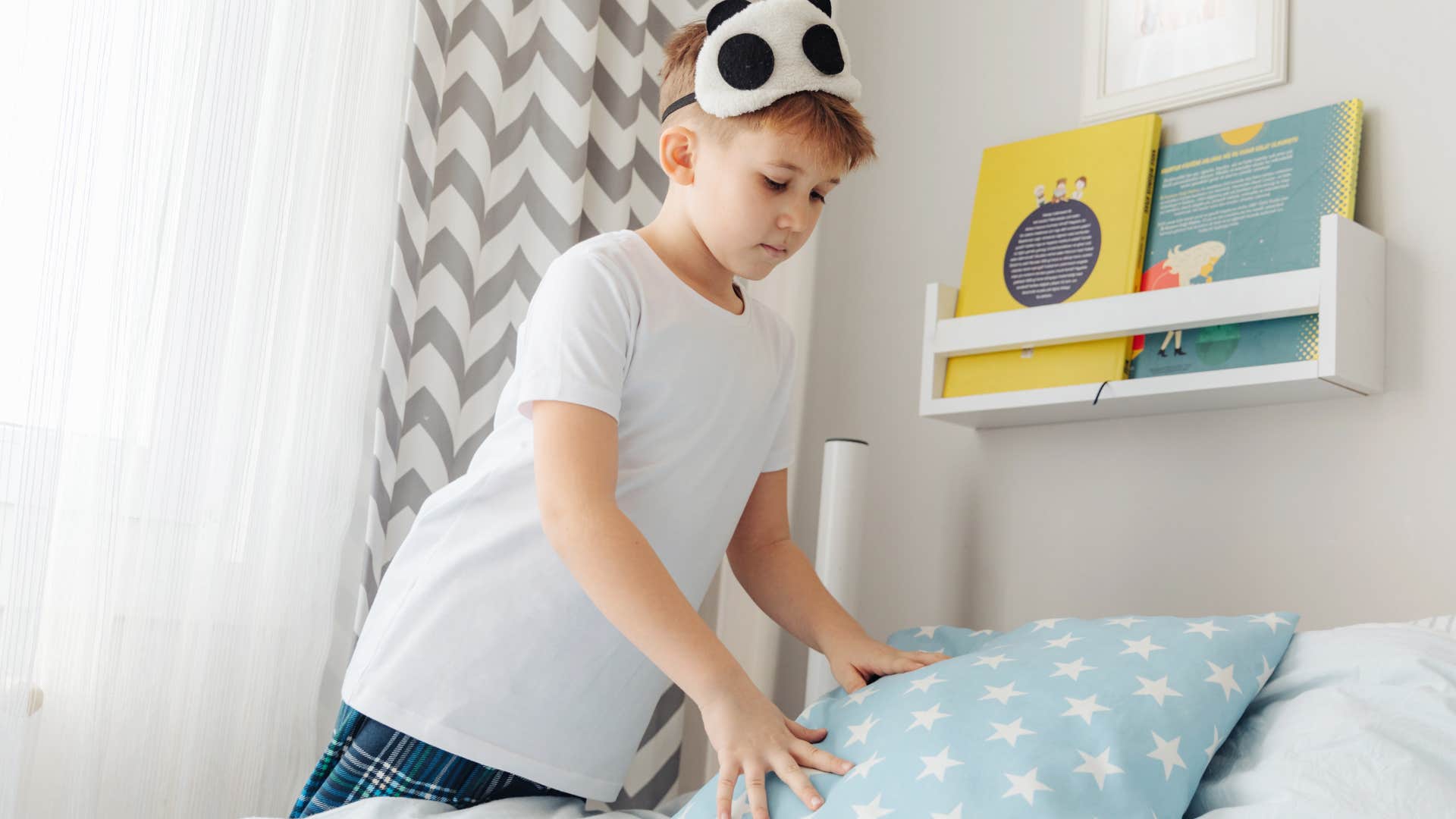 Iryna Dincer | Shutterstock.com
Iryna Dincer | Shutterstock.com
Learning how to set and stick to healthy habits isn't an easy feat, especially as an adult who struggled with maintaining a healthy routine as a child.
But parents who create bed-making rules like this aren't just doing it to maintain a standard of cleanliness, they're also helping their children learn discipline and the benefits of healthy habits.
4. No wearing shoes in the house
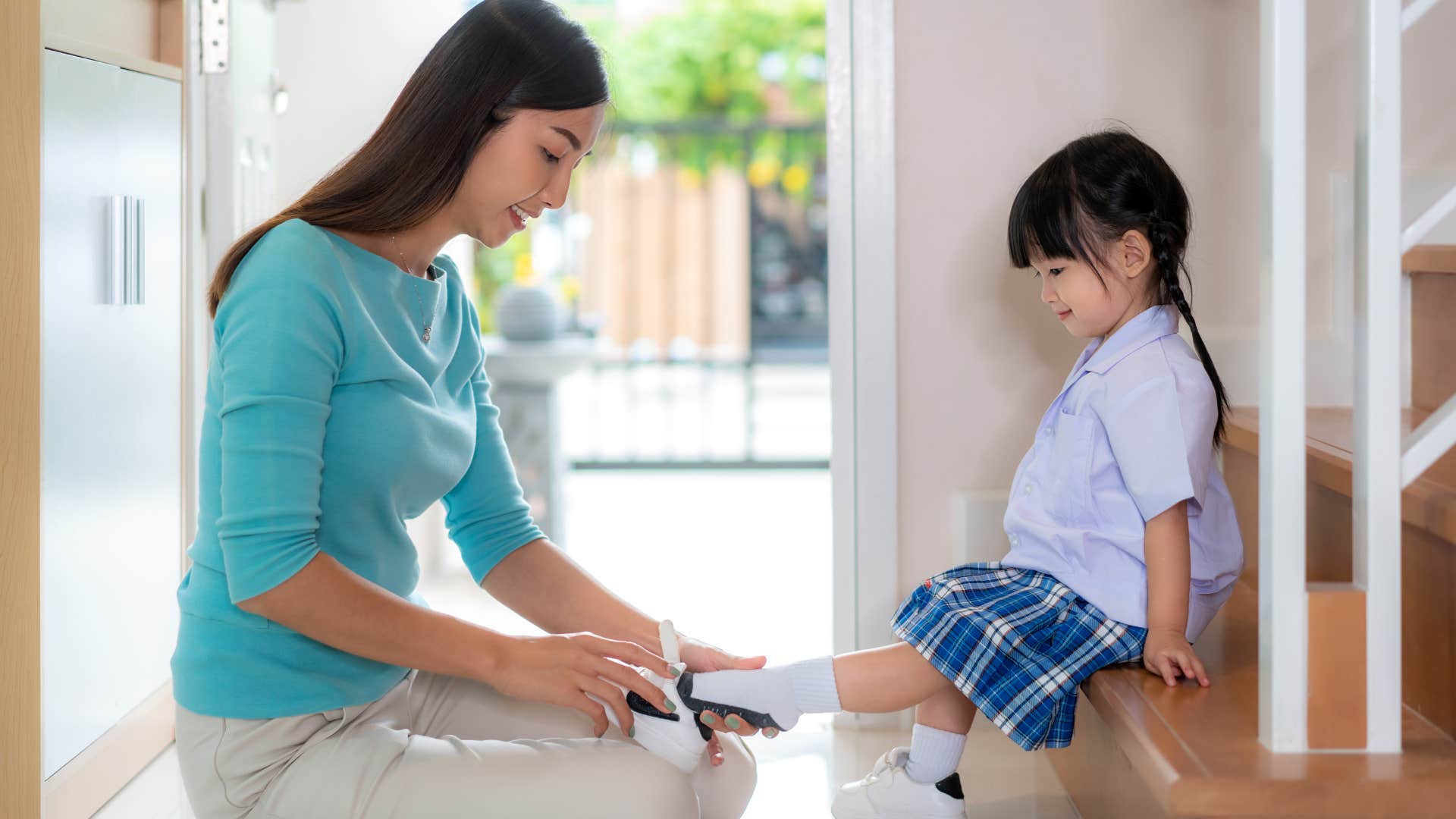 PrasitRodphan | Shutterstock.com
PrasitRodphan | Shutterstock.com
According to a 2023 CBS News poll, nearly 2 out of 3 Americans remove their shoes when they get home, for a variety of reasons. Regardless of those personal decisions, in their own home the practice can teach young kids to respect people's space and property — generally teaching them respect, whether they're taking their shoes off at home or in someone else's.
In addition to combating the dirt and grime from people's shoes in your home, removing your shoes actually has impactful benefits to mental health and connection. By walking around barefoot, you have a better grounded framework in your body, giving you the space and energy to have better conversations and more meaningful interactions without the unsuspecting rigidness of your shoes.
5. No sleepovers
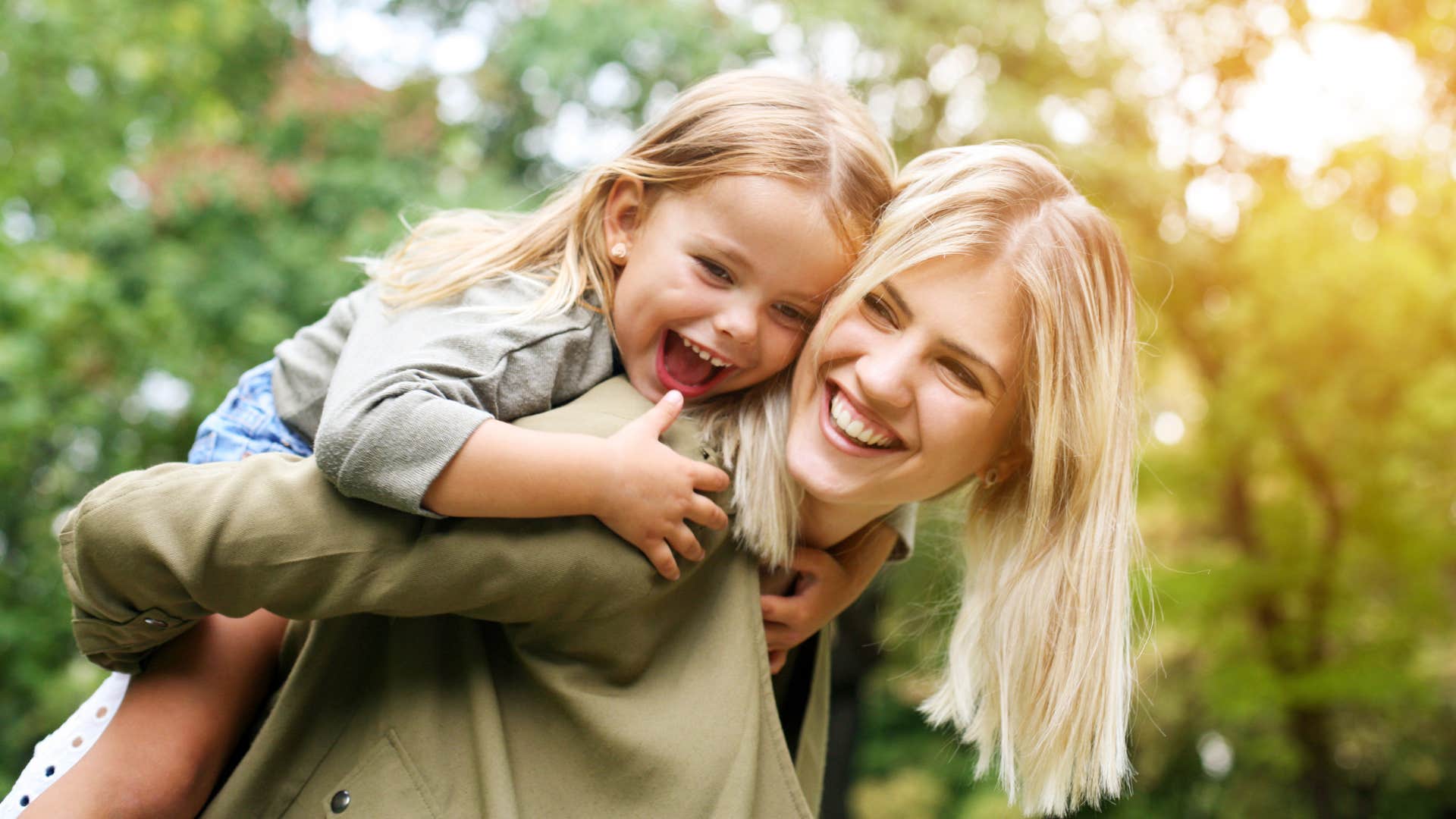 Liderina | Shutterstock.com
Liderina | Shutterstock.com
Many parents, especially younger generations, are forbidding sleepovers for their children, largely influenced by their overprotective nature and the accessibility of safety concerns. While this practice can be driven by a need to supervise or control their children's safety, there are ways to help children engage in unrestricted play that can benefit their help, without having to stress over sending them to a friend's house for an entire night.
According to a study from University College London, kids who are allowed to have unsupervised play time are generally more active, confident, and social than their counterparts, but that kind of unrestricted play doesn't need to happen at a sleepover. While it's unsuspectingly one of the odd rules parents have that actually make their kids better people, it teaches them to be more present during playdates and hangouts they do have.
6. Wearing hand-me-downs from siblings
 Evgeny Atamanenko | Shutterstock.com
Evgeny Atamanenko | Shutterstock.com
Especially in a consumerist and trend-centered world for modern kids, parents who teach their kids to accept and wear hand-me-downs from siblings are more appreciative when they do purchase a new clothing item. Not only is it more cost-effective and sustainable for entire families, it can promote a bond between siblings that's impossible to ignore.
While it might spark some resentful feelings in young kids and teenagers, they learn to value new clothing and purchasing power much more into adulthood than kids who were gifted every new trendy item.
7. Taking forced naps
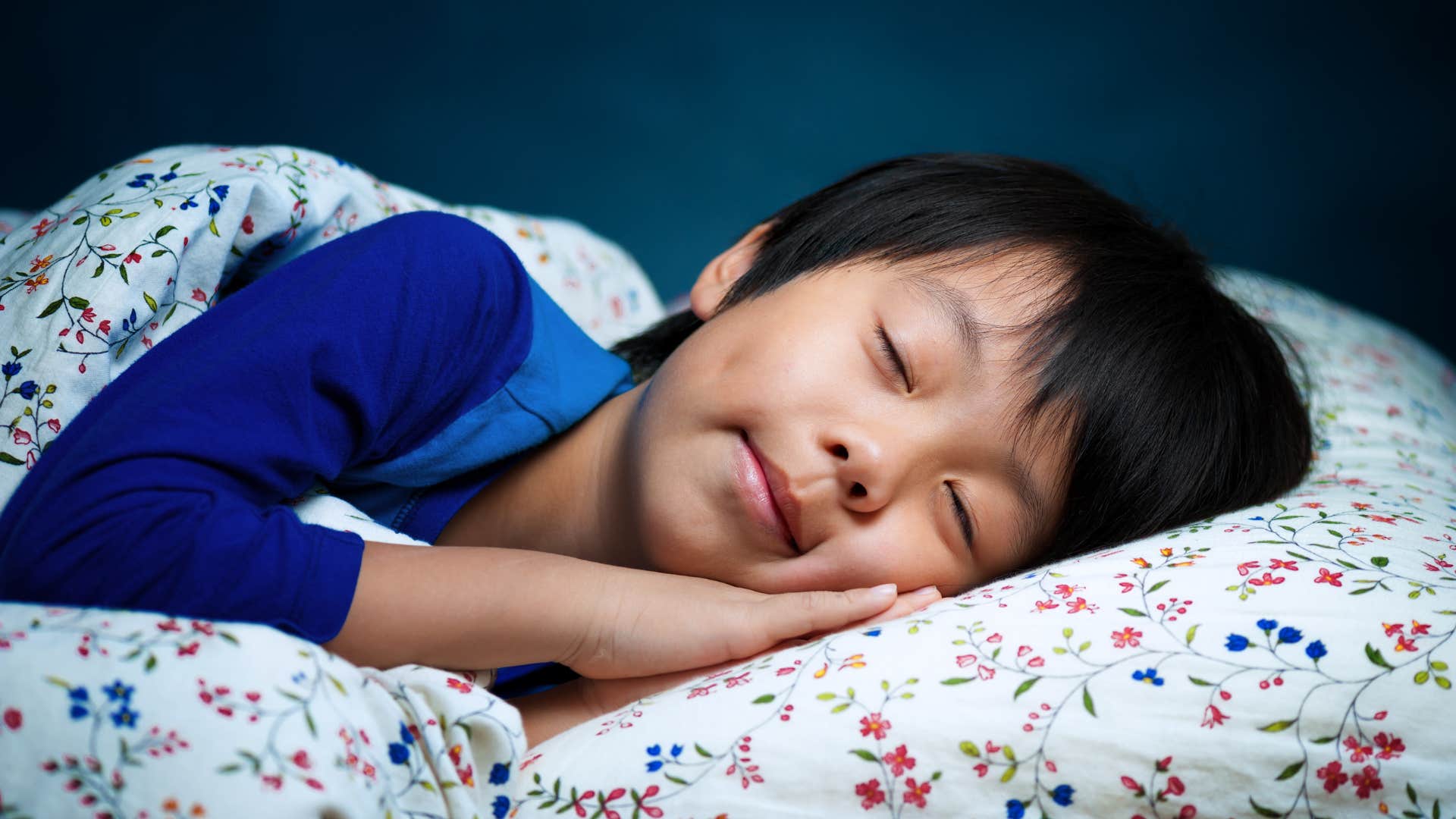 Hung Chung Chih | Shutterstock.com
Hung Chung Chih | Shutterstock.com
Even for kids that have outgrown the "acceptable" age for a midday nap, continuing the habit into young adulthood and adolescence can actually have great benefits. According to research from MIT economists, people who adopt the practice of a daily 30-minute nap are 2.3% more productive than those who don't.
Not only does napping promote better focus and productivity, it can ingrain impactful ideas about self-care and the importance of recharging in young children. As they enter adulthood, their self-care ritual might not encompass midday naps anymore, but the principle behind the practice remains.
8. Only using the Internet around parents
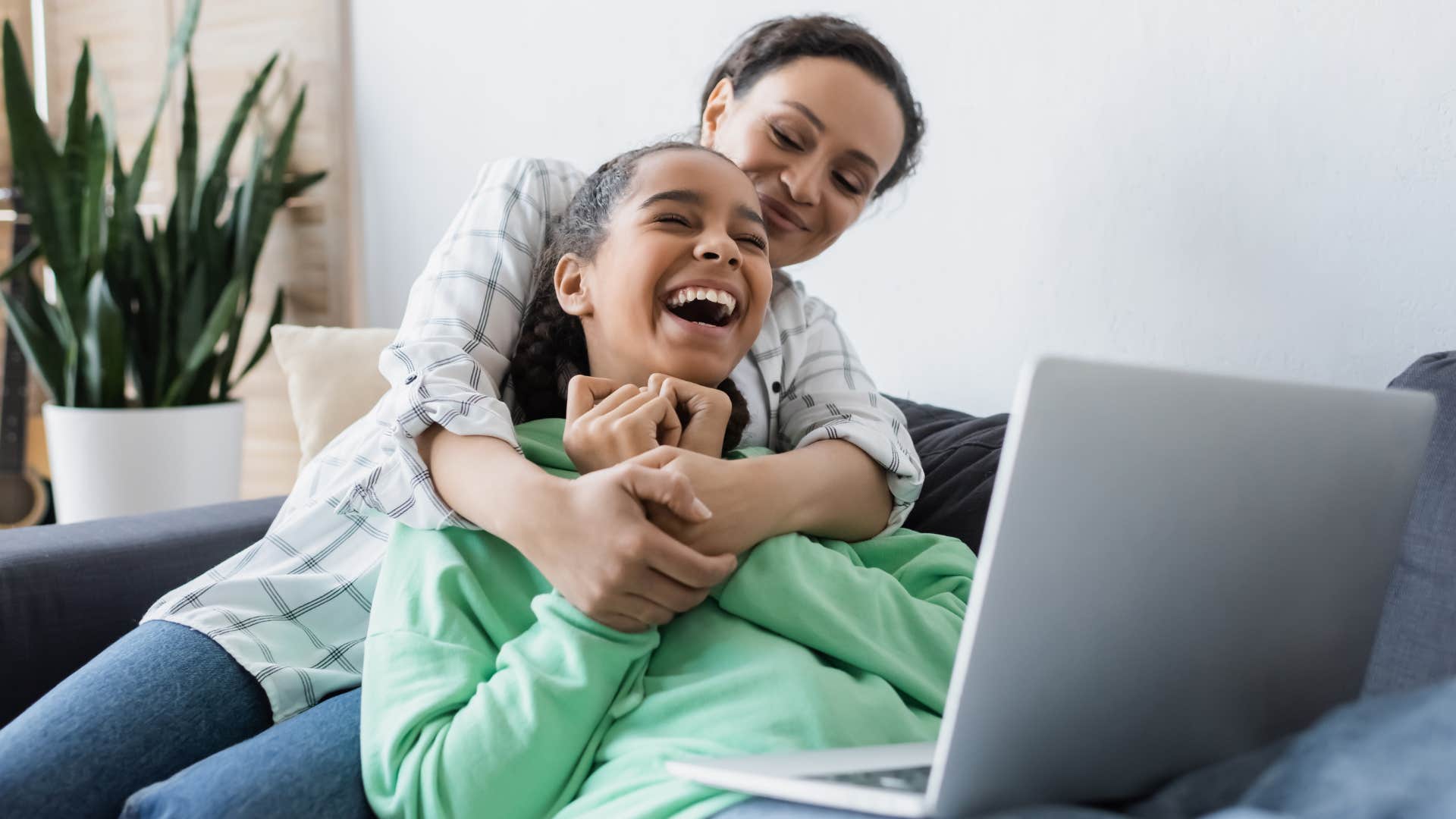 Lightfield Studios | Shutterstock.com
Lightfield Studios | Shutterstock.com
According to a Pew Research Center study, around 75% of parents of children ages 5 through 11 "regularly monitor" their kids' phone usage, including browser history, messages, and frequently used apps. While it might have felt like a privacy dilemma to many older teenagers growing up, the true tendency for safety concerns to erupt from unrestricted Internet access is more alarming than you'd expect.
From cyberbullying, to privacy issues, and more unsettling communication with strangers, a child's unrestricted access to the Internet, without their parents around, can present a lot of issues that today's ultra-protective parents aren't willing to play around with. With odd rules like this one, parents can ensure their young children aren't innocently putting themselves at risk.
9. No walking around with socks on
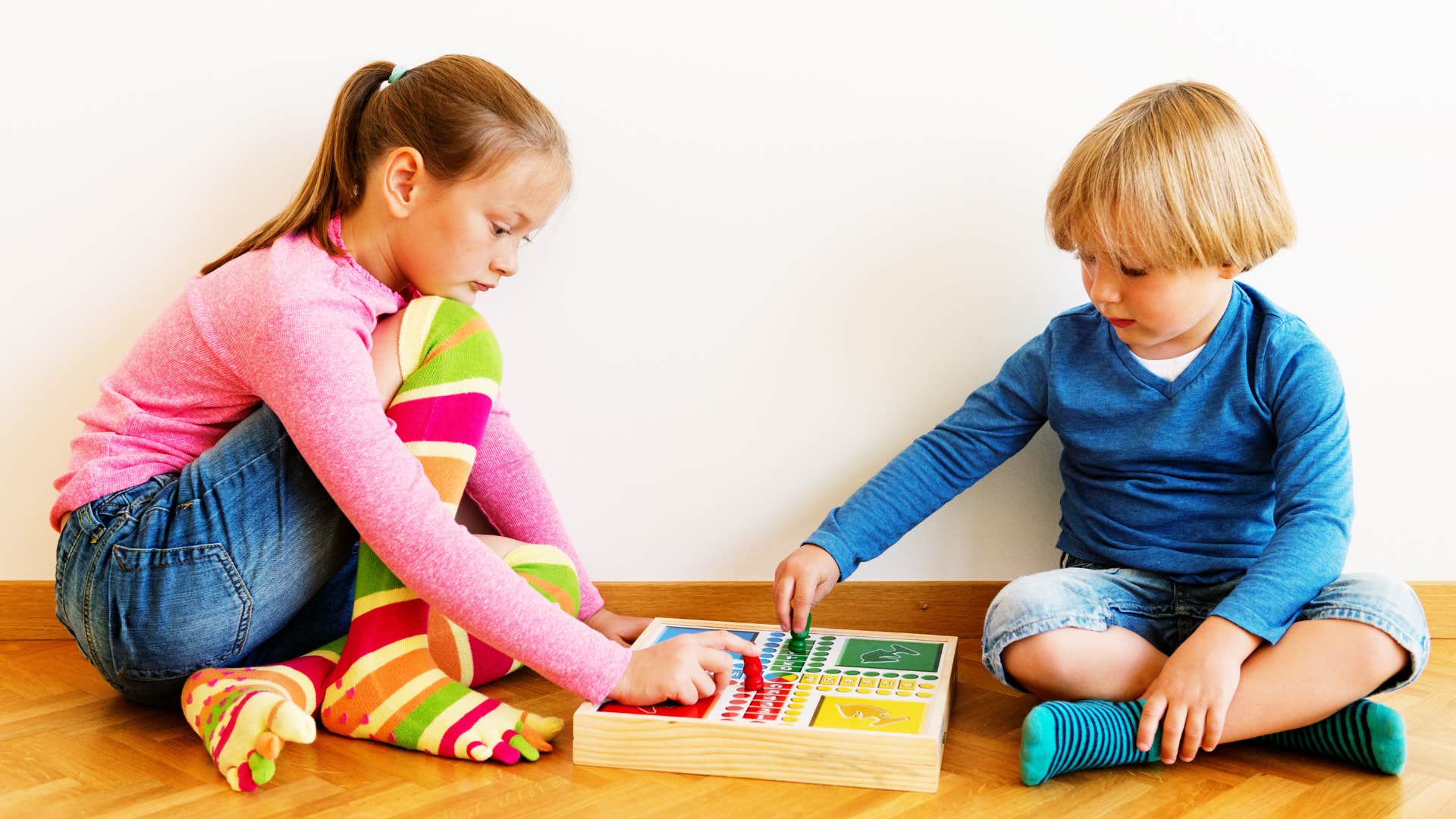 Anna Nahabed | Shutterstock.com
Anna Nahabed | Shutterstock.com
It's not just safety concerns of socks on hardwood floors that influence this odd parenting rule, although it's certainly an aspect of it. According to the Foot and Ankle Surgical Associates, there's also a number of developmental benefits to encouraging kids and young adults to go barefoot, from improved circulation, to better immunity, and enhanced sensory growth and strength.
Walking barefoot, especially at home or outside, has also been shown to improve stress levels and help people of all ages to remain calmer, less anxious, and more present. So, while this rule might seem strange, it's truly just encouraging kids to adopt a practice that will serve their physical and mental well-being into adulthood.
10. Replacing swear words with 'nice' alternatives
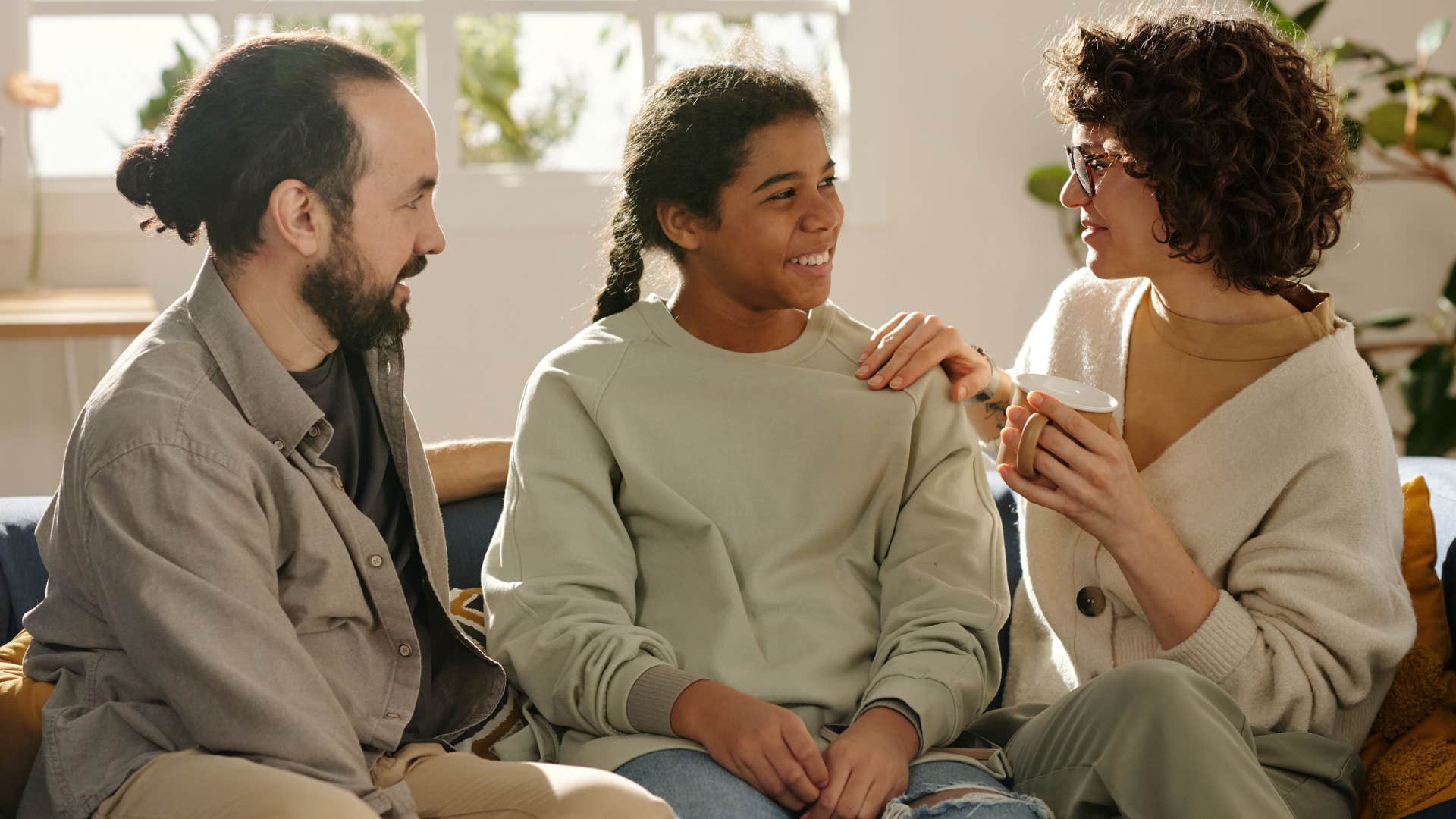 Pressmaster | Shutterstock.com
Pressmaster | Shutterstock.com
While swear words often help adults to cope with strong emotions and feelings, there are other practices parents can instill in their kids that will better serve them in adulthood, according to the American Psychological Association. From breathwork, to meditation, and open communication, there's more efficient and productive ways for kids to manage their uncomfortable emotions outside of swearing.
Many parents go a step further with this odd rule, urging their kids to reap the benefits of a seemingly "bad" swear word with euphemisms instead of the actual phrase. This practice not only helps young kids to express their emotions and communicate respectfully, it can give them a chance to learn to think before they speak, helping their long-term communication skills.
11. Not leaving the dinner table until everyone's finished
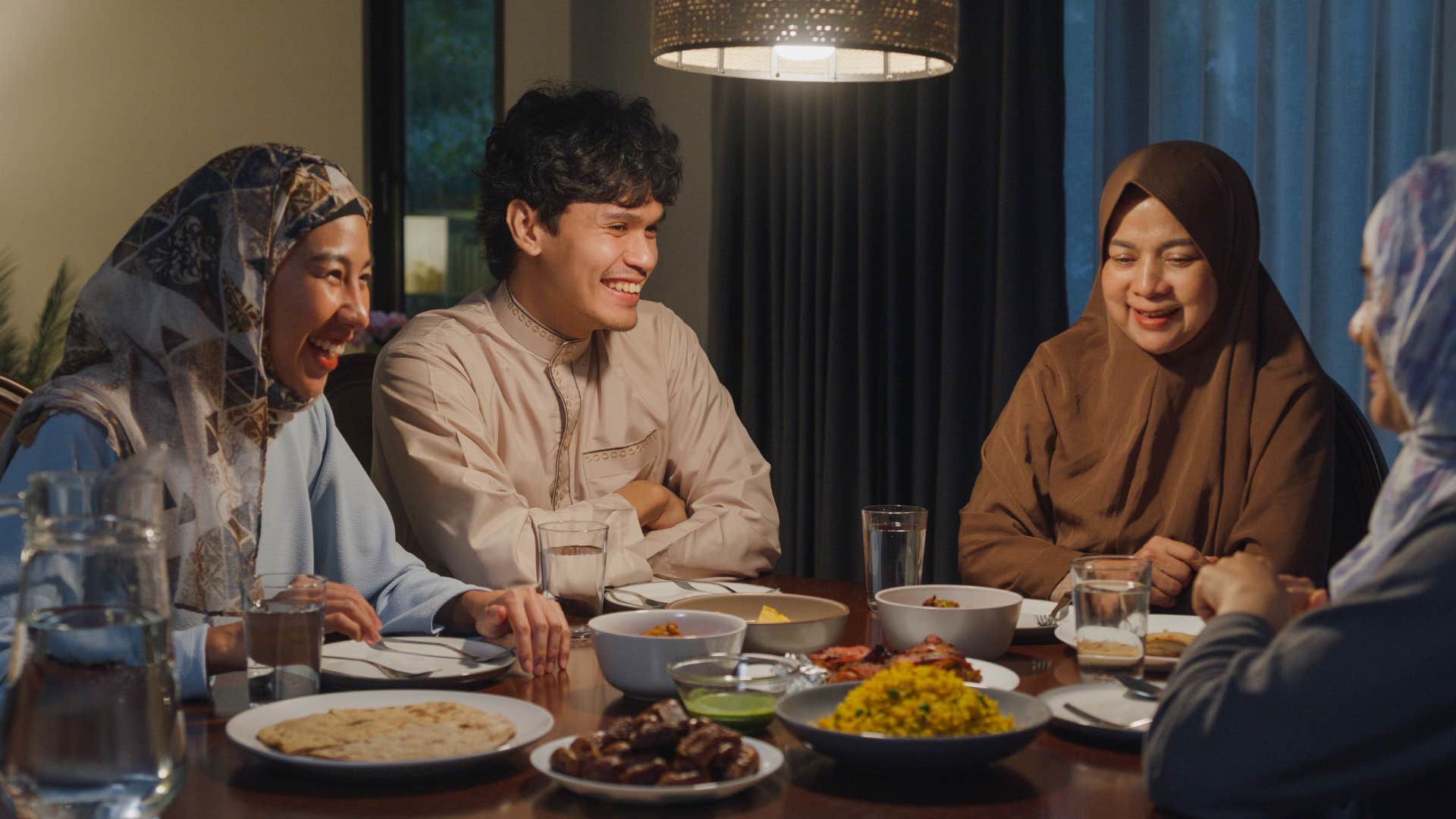 Tirachard Kumtanom | Shutterstock.com
Tirachard Kumtanom | Shutterstock.com
Unsuspecting to some households that never used a shared dining room table for dinner, there's great parenting lessons that can spark from a shared meal. From expressing gratitude, to teaching manners, and even time management, parents can utilize this daily practice as the perfect opportunity to set their kids up for success, no matter their age.
Kids who are expected to remain at the dinner table until everyone's finished their meals also learn patience, a generally hard virtue to master, especially at a young age. By making dinners a positive and productive experience, filled with open communication and praise, kids learn to value their time with family, rather than loathe it, as they learn patience.
12. Never going to bed angry
 Fizkes | Shutterstock.com
Fizkes | Shutterstock.com
A facet of modern parenting that's been prevalent in households for decades, parents who urge their children to "never go to bed angry" will spark great communication and emotional intelligence. While research from the Gottman Institute argues a "break" from an argument can be beneficial, most people tend to sleep better when they're not burdened by the stress and anxiety of an unresolved conflict.
Not only does this exemplify the kind of communication and conflict-resolving skills in relationships their children will need going into adulthood, it often sparks a better baseline and understanding between parents and their kids while they're still at home.
Zayda Slabbekoorn is a staff writer with a bachelor's degree in social relations & policy and gender studies who focuses on psychology, relationships, self-help, and human interest stories.

